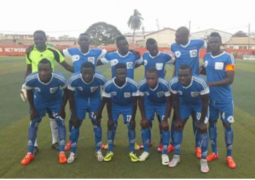In view of the rapid changes in the world, my first reflex is to call for a bigger debate on what these innovations mean to
The use of the Internet in areas that sometimes do not have access to basic services is another unequivocal evidence to show the vivacity of Africans to be part of the global village.
However, despite the promises and the progress made in many countries in favour of the emancipation of the media and freedom of the press, freedom of expression and the liberty to information still has some cloudy areas. Information is still considered as a symbol of intoxication and misinformation in many countries. After the Windhoek Declaration, the African Press has certainly gained some independence, but more still has to be done in order for the Press to play its rightful role in the African society Since May 3, 1991, the questions we might want to ask are whether Africa has sufficiently funded the media sector to enable its actors be trained well, to ensure the credibility of Press organs and whether appropriate national laws have been established to guide the media landscape. My conclusion is that, twenty years after the Windhoek Declaration,
In this respect, I wish to emphasize that the African Union Commission has undertaken to make press freedom in the continent a tangible and irreversible reality; an undeniable right. We will continue on this path. We recognize the need to regulate the sector, however, we believe that the systems adopted should, in no way, be an obstacle to Press Freedom. We have also committed ourselves to continue the work we have started with respect to the protection of the journalists from undue intimidation and harassment, ensuring their safety, their physical and moral integrity while encouraging the practice of freedom of expression and free access to information as a fundamental right enshrined in Article 9 of the African Charter on Human and Peoples’ Rights. This is reaffirmed in the Declaration on Freedom of Expression adopted by the African Commission on Human and People’s Rights at its 32nd Ordinary Session, held in October 2002 in
It is very important that we do this for the good of all Africans, given that the benefits of a well-informed citizenry are enormous. But, this can only be achieved when we work hand in hand as one; including journalists, owners of media institutions, governments, development organizations, media practitioners, civil society organizations, intergovernmental organizations, United Nations and the international community, to guarantee the exercise of this inalienable right enshrined in Article 19 of the Universal Declaration of Human Rights.


